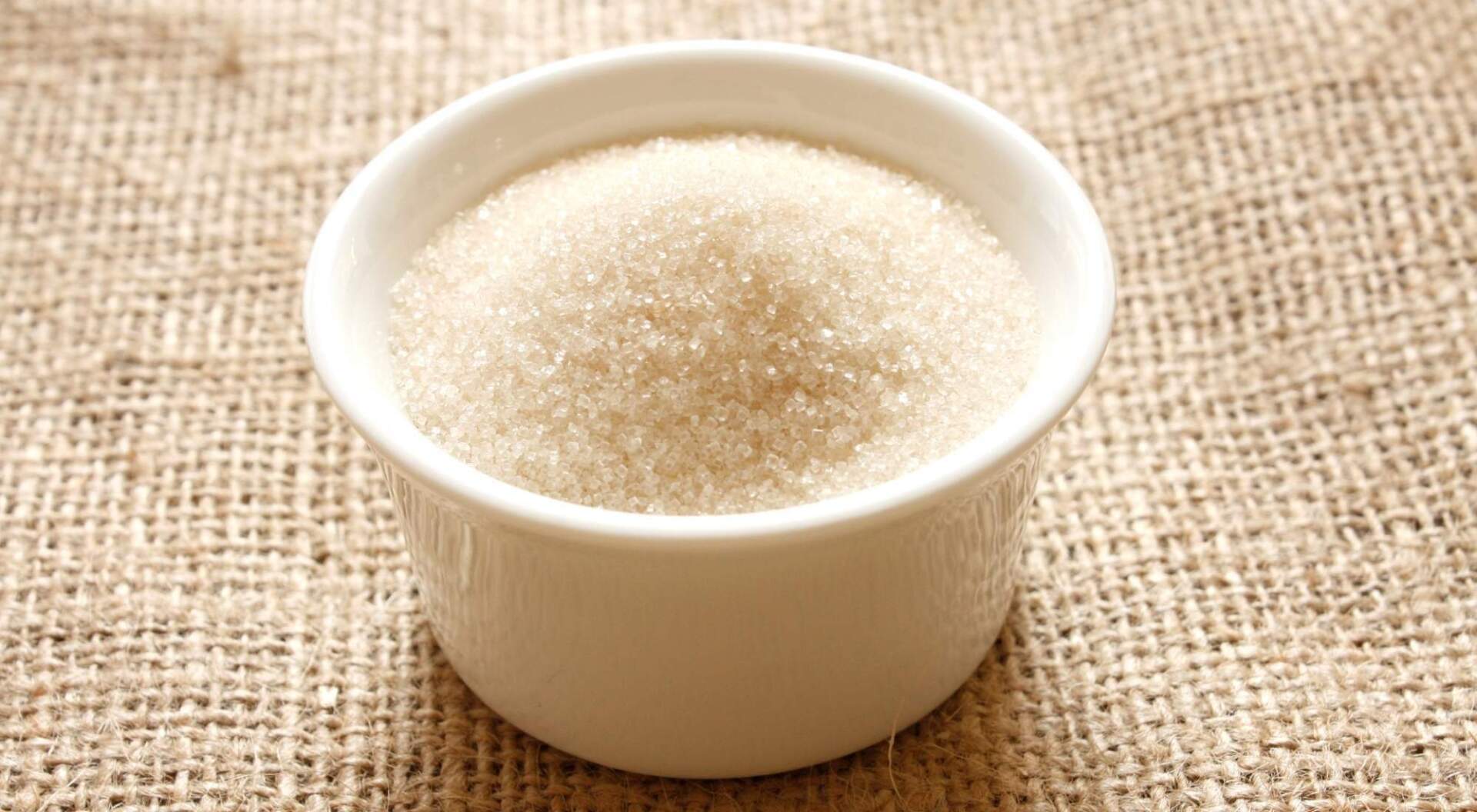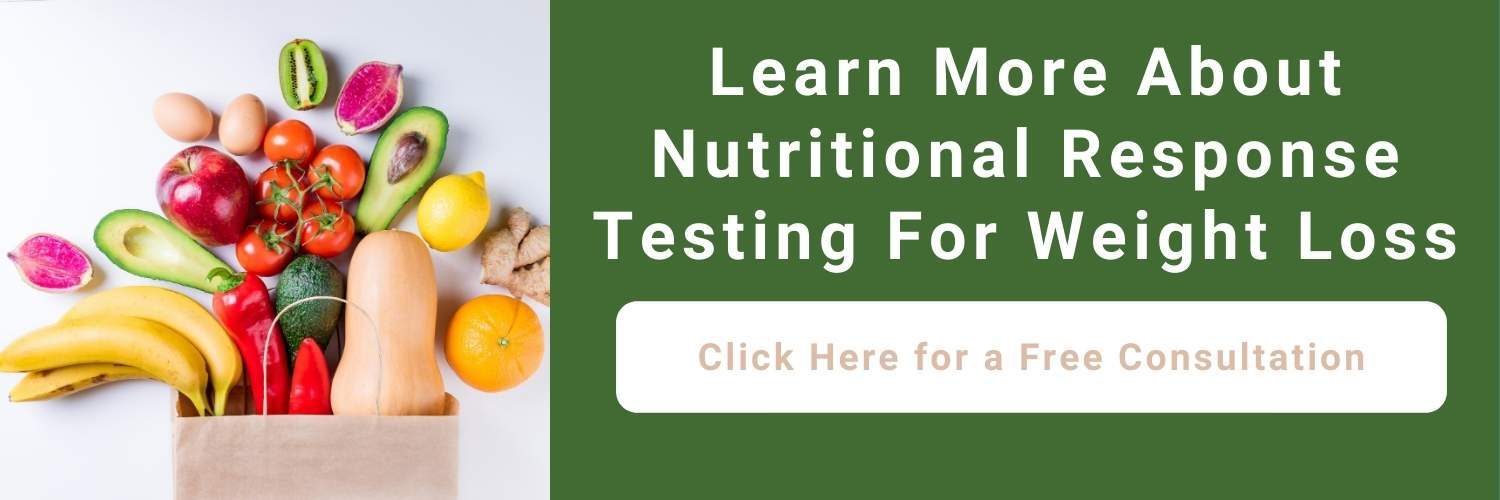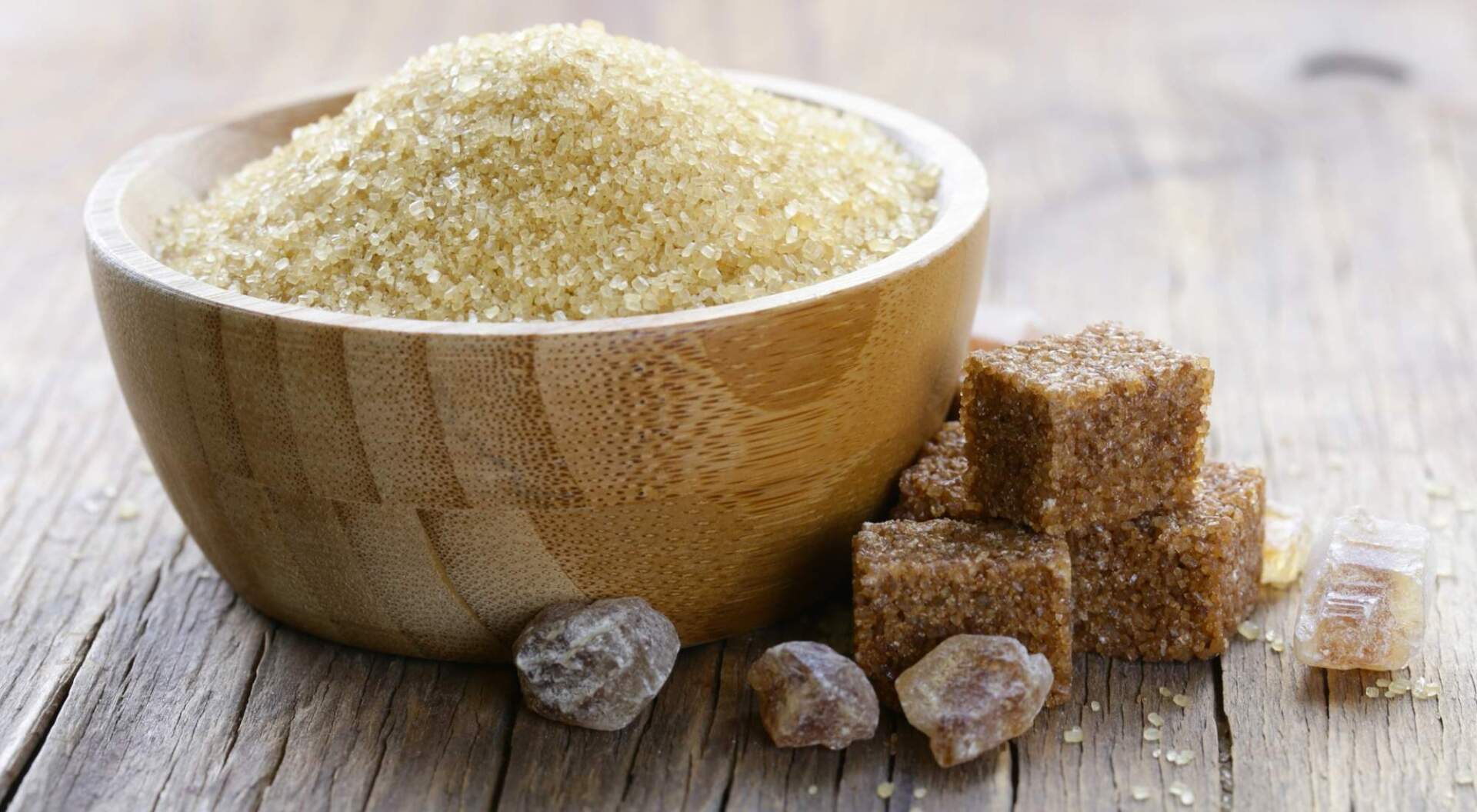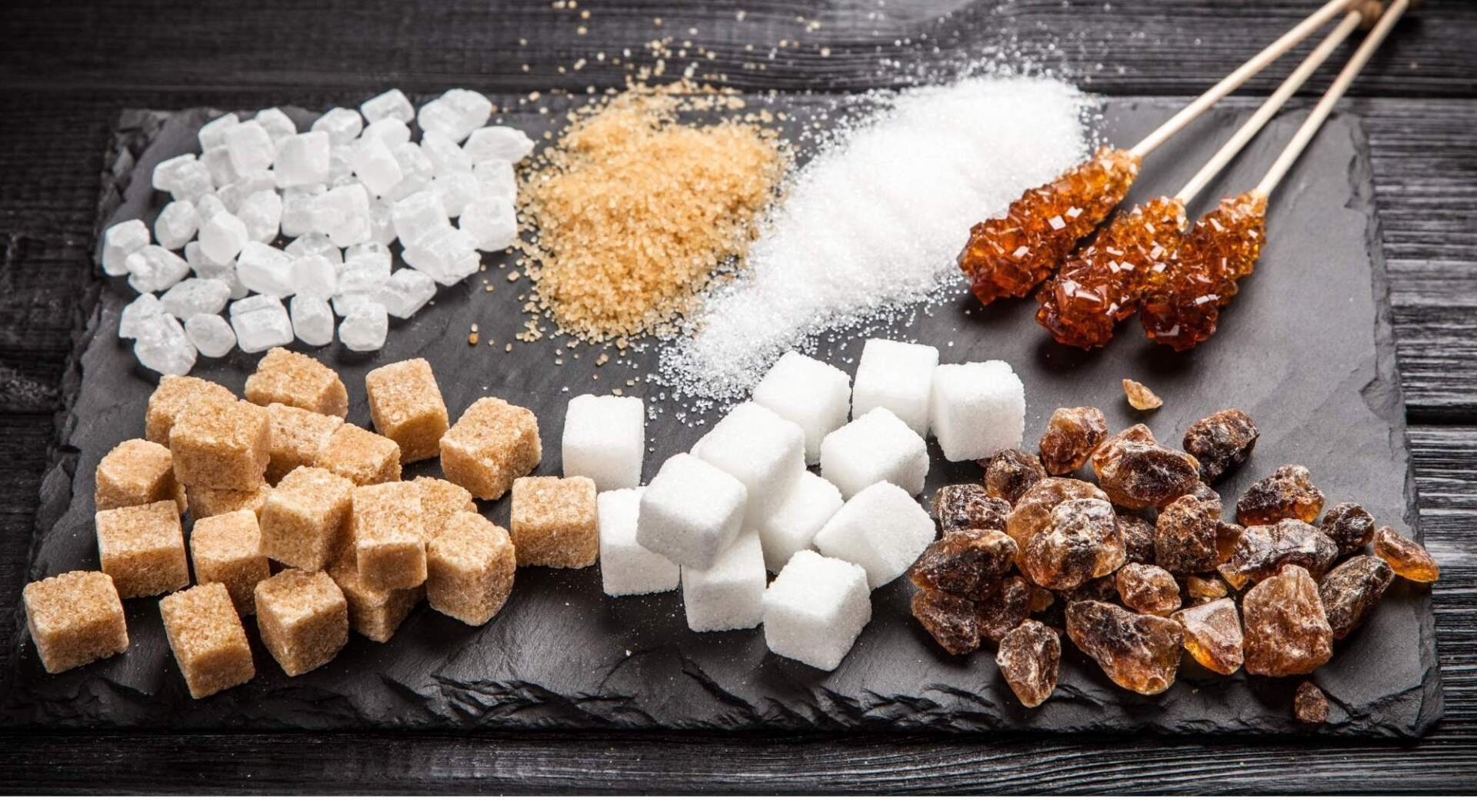Is Organic Cane Sugar Bad For You? An Overview
"The content below is not intended to be a substitute for professional medical advice, diagnosis, or treatment. Always seek the advice of your physician or other qualified health provider with any questions you may have regarding a medical condition."
You’ve committed to following a healthy lifestyle.
And of course, that means cutting back on your sugar intake.
You know that not all sugar is created equal and you're wondering if there's any benefit to going organic when it comes to cane sugar.
In this guide, we will take a look at organic cane sugar and see if it has any health benefits compared to its granulated counterpart.
Table of Contents
- What Is Organic Sugar?
- What Is Organic Cane Sugar Made Of?
- 3 Cane Sugar Benefits
- Organic Cane Sugar Contains Helpful Minerals and Vitamins
- It’s More Eco-Friendly
- Organic Cane Sugar Is Less Processed Than Other Forms of Sugar
- Which Sugar Is The Healthiest?
- Cane Sugar Vs. Refined Sugar
- Organic Cane Sugar Concerns
- How You Can Achieve A More Balanced Diet
- Need More Nutrition Advice? Try Nutrition Response Testing with HealthierU
What Is Organic Sugar?
Organic cane sugar has specific characteristics that set it apart from regular sugar.
Organic sugar:
- Is produced from organically grown sugar cane
- Is grown using organic farming practices which include crop rotation
- Is grown from non-genetically modified seeds
- Is processed using a more natural method than refined sugar
- Displays the United States Department of Agriculture organic seal on the label
- Is inspected by the United States Department of Agriculture or another certifying agency
- Is grown and processed with the use of considerably fewer synthetic chemicals, pesticides, or fertilizers than regular sugar.
And there are a variety of different types of organic cane sugar including:
- Whole cane
- White
- Turbinado
- Demerara
- Brown
- Muscavado
- Confectioners; and
- Liquid
What Is Organic Cane Sugar Made Of?
Organic sugar is made from certified organic sugar cane that’s been grown according to the USDA -created National Organic Program’s strict regulations.
Sugarcane refers to a variety of tall perennial grasses and is related to:
- Maize
- Rice
- Sorghum; and
- Wheat
It grows as a native crop in:
- India
- New Guinea; and
- Southeast Asia
3 Cane Sugar Benefits
While we know we should cut back on our sugar consumption, most of us still use some form of sugar each day.
It's hard to imagine a tasty sugar-free chocolate chip cookie.
The sugar makes a huge difference in not only the taste but also the texture of baked goods.
What about a cup of coffee or tea without cream and sugar?
No, thank you.
But besides the obvious, here are a few lesser-known cane sugar benefits:
- Cane sugar plays a vital part in the process of fermentation, feeding the cultures used in sourdough, kombucha, and yogurt.
- It helps preserve the color and taste of some foods and can also extend their shelf life.
- It's also an important component in soy sauce and fermented vegetable dishes such as sauerkraut, and kimchi.
#1: Organic Cane Sugar Contains Helpful Minerals and Vitamins
Since organic cane sugar is less processed than regular sugar, it retains the nutrients that were present in the sugarcane.
Unrefined organic cane sugar contains 17 amino acids, 11 minerals, and 6 vitamins including:
- Calcium
- Potassium
- Magnesium
- Iron
- Copper
- Zinc
- Vitamin E
- B vitamins
- Selenium; and
- Chromium
That sounds great, right?
But is organic raw cane sugar good for you?
The truth is, that while all of those amino acids, minerals, and vitamins sound beneficial, their amounts can be so minimal that they are not of any benefit.#2: It’s More Eco-Friendly
A noteworthy cane sugar benefit is that when it comes to cane sugar vs refined sugar, the production, and processing of cane sugar is the more eco-friendly of the two.
Unlike regular farming methods, organic farming regulations are strict about crop rotation thus allowing the soil to replenish its nutrients.
It’s important to note, however, that while organic sugar cane is more eco-friendly, that doesn't automatically mean it is chemical-free or pesticide-free.
Some synthetic sprays and powders are still allowed.
However, the substances used are not allowed to contribute to contamination of the:
- Soil
- Water; and
- Crops
Organic farmers have restricted access to 27 synthetic pest control products whereas conventional farmers have access to over 900.
#3: Organic Cane Sugar Is Less Processed Than Other Forms of Sugar
Let's take a look at the refining process for organic cane sugar and see how a stalk of organic sugar cane gets from field to table.
- First, the sugar cane is washed.
- It's then chopped and crushed to extract the juice.
- Next, the juice is boiled and spun in a centrifuge.
- Lastly, the juice is dried, forming sugar crystals.
The result is a natural product with the rich, delightful flavor of molasses.
What about granulated white sugar?
White sugar goes through the same process as organic cane sugar but adds a few additional steps including:
- The addition of calcium hydroxide and carbon dioxide.
- Filtering through bone char or natural charcoal.
It may be less refined, but is organic cane sugar healthy?
Let's take a look.
Which Sugar Is The Healthiest?
If you’re wondering which sugar is the healthiest, here's a list of the most common forms of sugar and how they rank from most healthy to least healthy:
- Honey
- Pure maple syrup
- Coconut sugar
- Raw cane sugar
- Agave nectar
- Brown sugar; and
- Granulated white sugar
Cane Sugar Vs. Refined Sugar
Here’s the scoop when it comes to the differences between cane sugar vs refined sugar.
For starters, it's important to take notice of where each type of sweetener is on the glycemic index.
The glycemic index is a number, ranging from 0 to 100, assigned to a type of food.
The lower the number, the less it may affect your blood sugar levels, which is a really good thing.
- Organic whole cane sugar has a glycemic index of 30 to 40.
- Refined sugar, on the other hand, has a glycemic index of around 65.
We know that cane sugar is somewhat less processed than table sugar.
Cane sugar is boiled only once, retaining the deep molasses flavor. Refined sugar, on the other hand, is boiled several times to remove all the molasses
The minimal processing means cane sugar still retains some molasses and moisture from the plant, so technically you’re consuming less sugar.
This leads us back to our question.
Is organic sugar cane healthy?
The consensus seems to be that, other than flavor, there's no real difference between the two.
According to Mother Jones Magazine , “refined and raw sugar are “calorically identical” and claims that raw sugar is a healthy alternative to it’s refined counterpart are greatly exaggerated.Is Organic Cane Sugar Better Than Regular Sugar?
The only notable difference between organic cane sugar and regular sugar is that organic sugar is grown using organic farming methods.
Both forms of sugar are identical in terms of their chemical composition, are made of sucrose, and create the same response in the body.Organic Cane Sugar Concerns
A whopping 60 pounds of sugar.
That's how much sugar the average American consumes in a year.
Compare that to The World Health Organization ’s recommendation that adults and children keep their daily intake of sugar to less than 5% of their total diet, which comes to around 20 pounds each year.
And there are plenty of additional concerns to consider when it comes to consuming sugar.
For starters, think back to that glycemic index we mentioned earlier.
Since most forms of sugar are just isolated sugar without the fiber from the plant. They enter your bloodstream at lightning speed.
Eating too much sugar can result in the all too familiar “sugar rush” or sugar headache.
Here's what's going on inside your body when you go on a sugar binge:
- Your body produces extra high doses of insulin to combat your sugar-high.
- You get a sudden burst of energy.
- 30 or 40 minutes later the sugar rush comes to a crashing halt, causing your blood sugar to plummet.
- You might get dizzy, get a killer headache, or feel sick to your stomach.
- In no time at all, you're hungry again.
It’s enough to make you think twice about pigging out on a pint of Ben and Jerry’s.
Eating too much sugar can also result in:
- Yeast overgrowth
- Mood swings; and
- Tooth decay
And since sugar is made up of empty calories, it can contribute to weight gain, particularly around your middle.
This excess belly fat causes inflammation within the body and can put you at a higher risk for:
- Cancer
- Coronary heart disease
- Stroke
- Diabetes
- Dementia
- Obesity
- Depression
- Arthritis; and
- Sleep disorders
Is organic cane sugar healthy?
No, it really isn't.
How You Can Achieve A More Balanced Diet
Healthy eating sounds like such a great idea and most of us are all in favor of eating a balanced diet.
But what do you do if you want to make healthy changes to your diet but you have a sweet tooth that seems impossible to satisfy?
Here are some practical ways to cut back on the amount of sugar you eat:
- Be sure to eat lots of fresh fruits. The natural sugars found in fruit will help satisfy your sweet tooth.
- Swap out your sugary soda for a diet drink. Or even better, sparkling water.
- Be sure to read all food labels carefully and always choose the products that contain the least amount of sugar.
- Try substituting applesauce for the sugar in baked goods recipes. You just might be pleasantly surprised.
- Decrease the amount of sugar in a recipe and up the spice content. Spices such as cinnamon, pumpkin pie spice, and ginger, can add a satisfying amount of sweetness.
- Eat smaller portion sizes when it comes to sweet treats. And spend plenty of time savoring each bite.
Need More Nutrition Advice? Try Nutrition Response Testing with HealthierU
Would you like to dig even deeper into improving your nutrition and health ?
You’ve come to the right place.
At HealthierU we utilize a scientific technique known as Nutrition Response Testing.
Based on the fact that your body knows what's wrong with it, Nutrition Response Testing finds the underlying cause of any health-related symptoms you may be experiencing.
Our experts are then able to determine just what nutrients or lifestyle changes your body needs to restore its optimum balance without the use of traditional medications.
Click here to see Dr. Sergi’s demonstration of Nutrition Response Testing.
HealthierU’s holistic chiropractic techniques and Nutrition Response Testing can help you tackle issues such as:
- Hormonal imbalance
- Digestive issues
- Thyroid dysfunction
- Hot flashes
- And more
Our goal is to help you be your healthiest you.
Get in touch with us today to schedule your free consultation.






